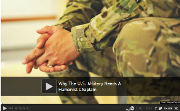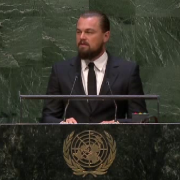 The title of this article places the word “Islamophobia” in quotation marks for the very good reason that I propose to talk about the trouble with the word itself. First, this is not an innocent word. It has a specific, very recent origin and history, and particularly a history of deliberate politicking for its acceptance. It is all too easy to use this new word, “Islamophobia” – and with it the very idea of Islamophobia – as a stick to beat people who are attempting to engage in genuine dialogue about the nature of Islam, particularly its more radical and/or political forms.
The title of this article places the word “Islamophobia” in quotation marks for the very good reason that I propose to talk about the trouble with the word itself. First, this is not an innocent word. It has a specific, very recent origin and history, and particularly a history of deliberate politicking for its acceptance. It is all too easy to use this new word, “Islamophobia” – and with it the very idea of Islamophobia – as a stick to beat people who are attempting to engage in genuine dialogue about the nature of Islam, particularly its more radical and/or political forms.
This is not to deny that some dislike of Islam, or impatience with Muslims and their spiritual leaders, has a quasi-racist character, motivated by parochialism and xenophobia, and sometimes a racist dislike of Arabs in particular. “Islamophobia” is a suspect word, but there is clearly such a thing as anti-Muslim bigotry.
The bigots and the critics
It is not coincidental that so much of the public criticism of Islam as a religion, and of Muslims and their practices, emanates from European political parties and associated groups found on the extreme right. These organisations typically promote an intense, even bigoted nationalism – combined with what they portray as a defence of Christian traditions and values, and an endangered “Christian identity.” They thrive on a fear of strange cultures and a fear of change.
An obvious problem for critics of Islam who do not share these values is that they may find themselves painted with the same brush. Conversely, extreme-right critics of Islam can gain a degree of respectability by co-opting issues and adopting stances that many politicians and members of the public find compelling. E.g., extreme-right figures have attacked such practices as forced marriages, honour-killings, female genital mutilation, and highly conservative apparel for women such as the burqa and the chador. All of these are legitimate targets for criticism.
At the same time, many Muslims in Western countries continue to suffer from suspicion, cultural and personal misunderstanding, discrimination, and outright intolerance that sometimes rises to the level of harassment and violence. It’s legitimate to oppose this bigotry while also fearing Islamist groups that seek to impose some version of Islam by force.
The situation creates a complex set of advantages, disadvantages, and risks. The extreme right benefits from the availability of politically respectable criticisms of Islamic thought and associated cultural practices. As this goes on, however, there is also a risk that the word “Islamophobia” will be used to demonize and intimidate individuals whose hostility to Islamism, or even to Islam itself, is based on what they perceive as its faults. In particular, we should remember that Islam contains ideas, and in a liberal democracy ideas are fair targets for criticism or repudiation. Religious doctrines influence the social and political attitudes of their adherents in ways that merit public comment (favourable or otherwise), and many religious leaders and organizations exert immense power or influence. It is in the public interest that all this be subjected to monitoring and criticism.
Indeed, there are reasons why right-wing organizations have borrowed arguments based on feminism and secularism. These arguments are useful precisely because they have an intellectual and emotional appeal independent of their convenience to unpleasant opportunists. Regardless of who uses these arguments, they plausibly apply to certain elements of Islam, or at least to attitudes and practices associated with it. In any event, it is an inescapable fact that political Islam is a threat to global peace and to liberal ideals.
Whether or not they are put in good faith on a particular occasion, nothing precludes the arguments being put sincerely, and perhaps cogently, by individuals with legitimate concerns.
Thus, there are genuine reasons for some people who are not racists, cultural supremacists, or anything of the sort, to criticize Islam, or certain forms and manifestations of Islam, or to express hostility towards it. These relate to disapproval of various doctrines, canons of conduct, associated cultural practices, and so on, to the power wielded by Islamic leaders and organisational structures, and increasingly to the ambitions and actions of Islamists such as ISIS.
Take-home lessons
A number of lessons can be drawn from all this. One is that opponents of Islam, or some of its forms and manifestations, cannot reasonably be expected to keep quiet when accused of racism or the quasi-racism of “Islamophobia.” When these accusations are misdirected, they are likely to inflame passions even further, though they may intimidate some individuals into silence.
This suggests that we understand that racism and bigotry do not underlie all hostility to Islam. Beyond a certain point, there is too much disadvantage in walking on eggshells. We don't have to do it all our lives.
By Russell Blackford . . An SGI Fellow : https://secularglobalinstitute.org/russell-blackford
 Video: World's Oldest Freethought Publication
Video: World's Oldest Freethought Publication Video: Theism is Not Rational by Aron Ra.
Video: Theism is Not Rational by Aron Ra.


 Video: A C Grayling Discusses Humanism
Video: A C Grayling Discusses Humanism Video: Leonardo DiCaprio
Video: Leonardo DiCaprio 30 Of The Most Violent Exhortations From The Bible, Torah, And Quran
30 Of The Most Violent Exhortations From The Bible, Torah, And Quran













